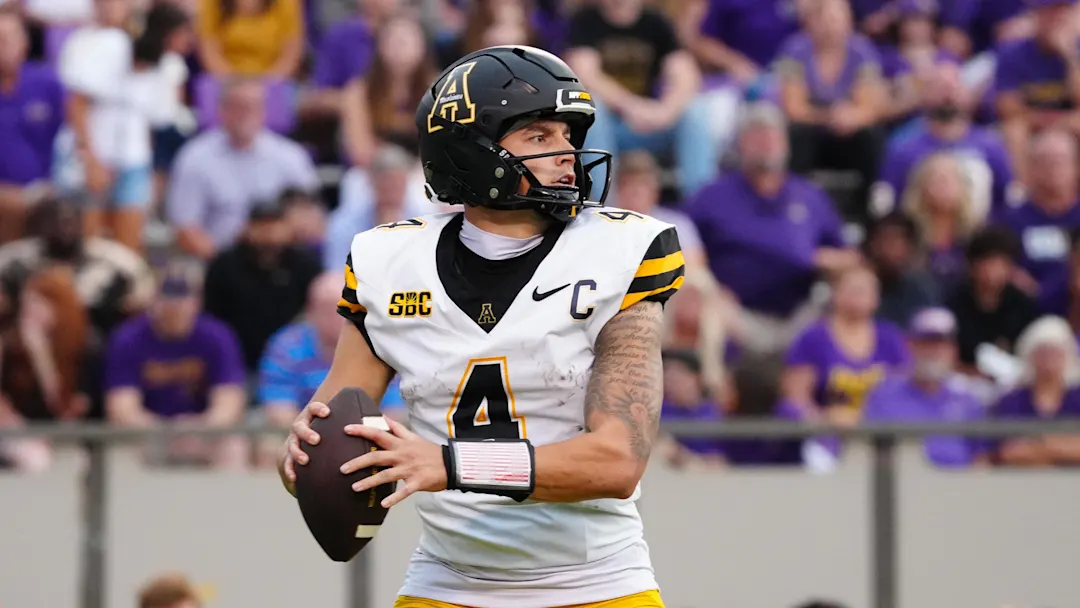Tennessee’s acquisition of transfer quarterback Joey Aguilar has quickly become one of the most compelling storylines of the 2025 college football offseason. With the Vols inching closer to another shot at the College Football Playoff, Aguilar’s arrival is being viewed as a decisive piece that could tip the scales in Tennessee’s favor. While many transfer portal additions make quiet, incremental impacts, Aguilar’s status as a franchise-level upgrade has analysts buzzing, and for good reason.
First, some context. Tennessee saw a dramatic departure this spring when Nico Iamaleava, their starting quarterback, opted to transfer to UCLA after requesting a substantial increase in his NIL compensation, reportedly seeking a jump from $2.4 million to $4 million. Instead of renegotiating, Tennessee let him walk—a bold move reflecting their confidence in both the system and the alternatives available to them youtube.com+10reuters.com+10si.com+10. Enter Joey Aguilar, whose transfer from Appalachian State to UCLA and then swiftly to Tennessee makes for one of the most unusual “quarterback swaps” of modern college football. As Reuters framed it, Tennessee and UCLA “finalized what amounts to an offseason quarterback trade” thescore.com+4reuters.com+4cbssports.com+4.
Aguilar brings an impressive résumé. After starting his college career at Diablo Valley College, Aguilar transferred to Appalachian State, where he earned Sun Belt Newcomer of the Year honors in 2023. Over two seasons, he passed for 6,760 yards, tossed 56 touchdowns, and rushed for additional scores thescore.com+3cbssports.com+3en.wikipedia.org+3. His early displays of dual-threat competence—completing 63.7 percent of his passes in 2023 and accounting for multiple touchdowns both in the air and on the ground—presented him as an intriguing playmaker with seasoned credentials.
Last year’s statistics, however, did highlight some concerns: Aguilar completed 55.9 percent of his passes, threw 23 touchdowns and 14 interceptions, and logged 3,002 passing yards 247sports.com+10en.wikipedia.org+10youtube.com+10. Critics noted his drop in efficiency and increased turnover rate, raising flags about consistency and decision-making. That said, Tennessee’s offensive system under coach Josh Heupel—characterized by quick reads, tempo, and route precision—could help mask some of those weaknesses and amplify his strengths cbssports.com.
Financially, Aguilar reportedly secured around $1.2 million in NIL compensation from Tennessee, a sum that aligns with the final year left in his eligibility and underscores how serious Tennessee is about this move thescore.com+3reuters.com+3frontofficesports.com+3. While that number doesn’t match the $2.4 million Iamaleava had, it still places Aguilar among the higher-paid quarterbacks via NIL at the FBS level—suggesting Tennessee didn’t hesitate to invest in experience and leadership at a critical position.
From Tennessee’s vantage point, this acquisition is two‑fold in strategic value: immediate impact and developmental bridge. Aguilar is expected to start right away, offering a polished veteran presence who can manage high-pressure SEC games and College Football Playoff aspirations. His mobility, evidenced by 456 rushing yards and five touchdowns in 2023, adds a dimension Tennessee historically values in quarterbacks—particularly under Heupel’s system that isn’t afraid of quarterback runs and scrambles sports.yahoo.com+7cbssports.com+7reuters.com+7.
At the same time, Aguilar’s one-year eligibility window provides a seamless transition for Tennessee’s burgeoning quarterback future, including redshirt freshman George MacIntyre and Jake Merklinger, both vying for roles in 2025 and beyond. It also aligns with blue-chip Class of 2026 quarterback Faizon Brandon’s commitment, giving the Vols a clear signal: this isn’t a long-term block for incoming talent, but rather a strategic step in a long-term plan cbssports.com+1statesman.com+1.
Analysts like Chris Hummer of CBS Sports have emphasized Tennessee’s strong quarterback “floor” under their system, pointing out that most questions revolve around finding the right “ceilings” for big games . Aguilar’s introduction to Knoxville offers both a safe floor and enticing upside—if his decision-making sharpens and ball security improves, he could be the X-factor that lifts Tennessee from playoff hopeful to national contender.
Of course, integrating a transfer quarterback into any system requires chemistry with receivers, learning playbooks, adjusting to new coaches, and adapting to SEC-level defenses. However, Aguilar has unfurled one checkpoint already: media days. According to 247Sports, he “will arrive relatively quickly” at Tennessee and is being prioritized for installation in the offense—an encouraging sign of how seamlessly the program expects him to assimilate 247sports.com.
That swift timeline is critical. Tennessee opens its 2025 season on August 30 in Atlanta against Syracuse, and the Vols—who debuted in the College Football Playoff last season—need a quarterback who’s ready to hit the ground running. Especially given their explosive offense, averaging 35.7 points and 447 yards per game in 2024, if Tennessee wants to improve upon last season’s CFP exit, they’ll need to start hot and maintain momentum thescore.com.
On the flip side, Aguilar has his own set of stakes. Transitioning from a Group of Five program to a high-tempo SEC team with playoff expectations, the spotlight is brighter and the margin for error slimmer. The reduced completion percentage and turnover concerns from 2024 will be scrutinized, and his ability to learn from mistakes and command the crowd will be put to the test. But it’s worth remembering that Heupel’s system is designed to protect quarterbacks—quick routes, rhythm passing, and defined reads can help mask inefficiency and mitigate risk.
Importantly, Aguilar’s move underscores a broader trend in college football: the transfer portal is not just a way to patch holes—it’s where foundational rivalries for titles are won or lost. Tennessee’s bold swing at a veteran QB who combines experience, athleticism, and high-ceiling potential signals they aren’t robbing from the future but investing in the now. It also sends a message to recruits—especially quarterbacks—that Tennessee’s offense is serious about winning and prepared to support you in reaching it.
Critics will argue that Aguilar’s inconsistencies leave too much to clean up, and that Tennessee should’ve pursued more polished SEC quarterbacks. But this would overlook Tennessee’s play-calling philosophy. They value athleticism and mental toughness. Aguilar’s willingness to take chances—reflected in his 24 interceptions over two years—not only aligns with an aggressive offense but could produce massive rewards if tempered by smart coaching .
The potential scenario is tantalizing: Aguilar processes reads efficiently, limits turnovers, and uses his legs to extend drives. He leads Tennessee to a hot start, powering them through the gauntlet of the SEC season. With explosive weapons around him and attitude in the locker room, the Vols could find themselves heading into December as one of the CFP’s legitimate contenders.
But the other scenario bears watching too: if initial chemistry is shaky or interceptions spike, Tennessee’s season could unravel fast. The Vols’ offense thrived on rhythm; a quarterback who hesitates or forces plays could pull the foundation from under their attack. That’s why this transfer is pivotal—Tennessee is betting playoff hopes on a quarterback with sky-high potential and some sharp edges. The payoff, should it come, might rank among the most impactful in the SEC this season.
Looking at the bigger picture, Aguilar’s arrival triggers a domino effect: Iamaleava heads to UCLA with a lucrative but arguably unstable NIL environment; UCLA experiences their own quarterback upheaval; Tennessee embraces volatility for potential upside. It’s emblematic of a new era. Programs are less cautious now—they want proven winners and are willing to roll the dice where the payoff matters most.
Aguilar’s story also carries underlying themes of resilience. From Diablo Valley junior college to Appalachian State stardom, then the UCLA shuffle, and now landing on college football’s national spotlight—his path blends grit and opportunity. Players who’ve had to fight for roles often bring an intangible leadership that can buoy a locker room in tense moments. Especially for a Tennessee team hungry to build upon last year’s CFP appearance, that intangible could prove invaluable.
As Tennessee’s preseason progresses, key storylines will include Aguilar’s rapport with offensive coordinator Vic Koenning, his grasp of the huddle, and his performance at summer camps. He’ll be under the microscope in August’s scrimmages and fall practices—each impressive drive, accurate pass, or smart audible will feed optimism; each turnover or blown read will fan skeptic flames.
Media narratives will frame Aguilar as the man between Tennessee and their second-ever CFP bid. Given his past and present, that storyline carries genuine emotional weight. Should he deliver—and if Tennessee’s dangerous offense finds rhythm—then Joey Aguilar won’t just be a transfer: he’ll be the quarterback who swang the Vols into postseason glory. If he falters, the spotlight will shift rapidly to fresh talent behind him; but that’s the gamble of big-time college football.
Ultimately, Joey Aguilar’s transfer to Tennessee is more than a roster update—it’s a calculated leap for championship potential. His blend of arm talent, athleticism, and experience presents a high-upside bet from which Tennessee hopes to reap big rewards. Whether it’s a gamble that pays off will unfold in real time on the SEC’s grandest stages. But one thing is clear: all eyes—and plenty of hopeful hearts—will be on #4 this fall, as Tennessee chases the ultimate prize.



